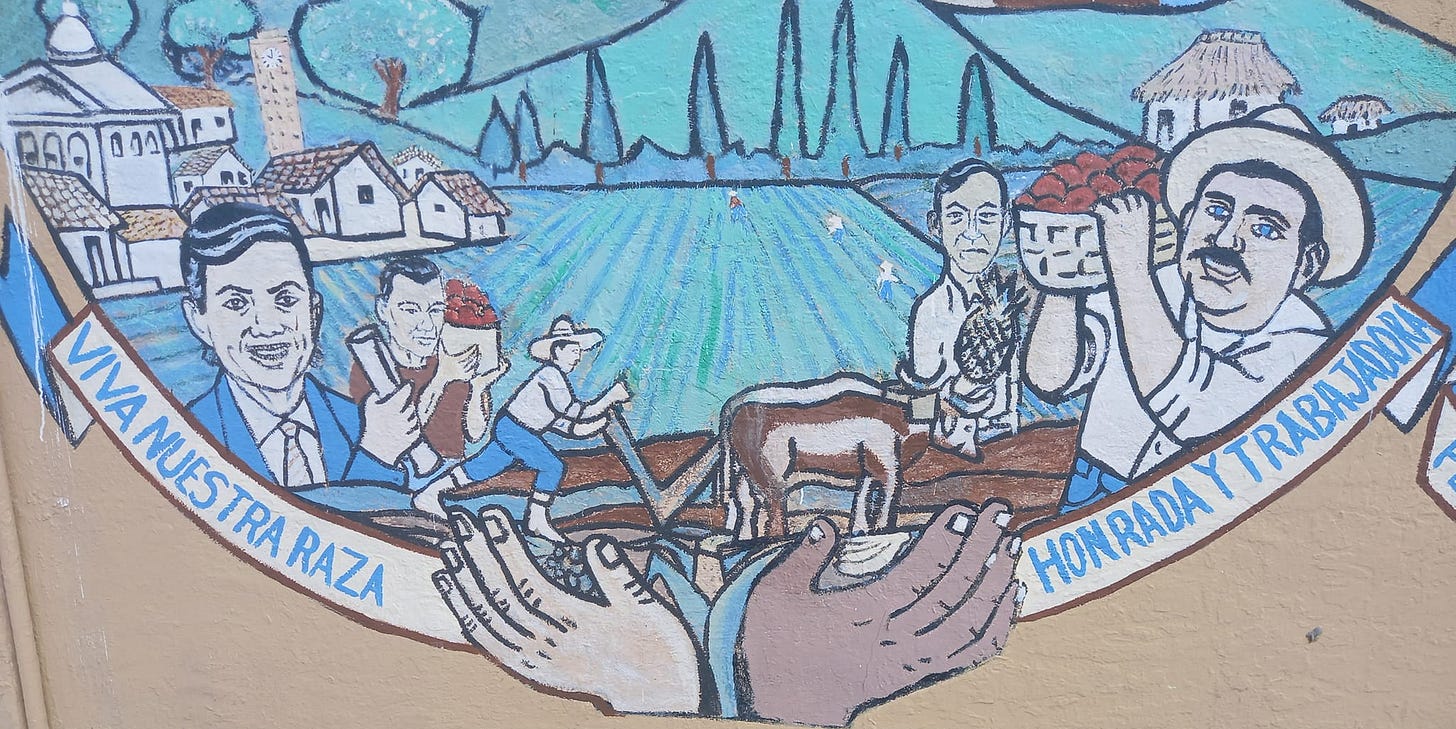Mestizaje, Equality, Collectivity: A few things to celebrate
In cultural and geopolitical terms, a more united Iberosphere would be a formidable force in today’s world
Every 12th of October, the Iberosphere grapples with its own traumatic identity. Populist politicians engage in bizarre proclamations of self-hatred, trying to obtain some sort of political capital based on historical falsehoods. However, a new current of collective celebration is also taking hold, and not without good reason: the Spanish-speaking world was responsible for some of the cultural seeds of what we call the “free world”.
Spain’s reputation had been historically castigated, for the best part of four centuries, as part of the war of propaganda between Catholic and Protestant Europe that led to the Black Legend and to a patronising, Orientalist, often racist, view of the Iberosphere that was reinforced by Romanticism. Popular perceptions of Spain’s Reconquest and global expansion were shaped by false or decontextualised narratives about the Inquisition and the values of its empire.
This is despite the positive contributions made in recent decades by, amongst others, rigorous English-speaking Hispanists such as John Elliott, Geoffrey Parker, and Stanley Payne. Reclaiming Spain’s history as a fundamental element of the development of Western ideas requires a significant step forward: accepting that the West cannot be understood without the contributions made by Al-Andalus, Sefarad, and the Spanish Christian kingdoms to the development of European civilisations.
The tradition that led to the separation of Church and State is inextricable, in its most profound roots, from the double truth expounded by Averroes. This doctrine interacted with Thomistic thought in Scholastic Christianity and paved the philosophical way for Humanistic ideas, centuries before the Renaissance. Advances in medicine were shaped by Avicenna and his Canon Medicinae, which filtered through to Europe via Southern Spain.
The configuration of our rights-based notion of the law is also indebted to Maimonides and his preference for acquitting a thousand criminals over condemning a single innocent man. The works of the Classics were translated, adapted and reinterpreted at the School of Translators of Toledo, set up by the Christian Kingdom of Castile under the sponsorship of King Alfonso X the Wise.
The New Laws of the Indies, partly informed by the empathetic recommendations of Bartolomé de las Casas, and based on the philosophy of Scholastics of Salamanca such as Francisco de Vitoria, were an early attempt at consecrating the dignity of the indigenous people in the letter of the law. This was a moral debate that only reached other European empires many centuries later.
Spain’s official policy concluded, with Vitoria’s De Indis, that the indigenous people of the New World had agency, dignity, and needed to be treated fairly as fellow human beings with a soul of their own. “No one is born a slave”, Vitoria told Emperor Carlos, and that became the law.
The Spanish crown defended such notions, in an almost utopian struggle against human nature and the dynamics of colonialism, to the best of its capacity during the viceroyalties system. Spain built an empire based on “borders of inclusion” that led to a mestizo continent, in contrast with the largely white Anglosphere with its “borders of exclusion”. There are 48 UNESCO world heritage sites, such as universities and hospitals, built by the Spanish crown outside Spain, in stark contrast with just 14 left by the British Empire across the world.
Similarly, the 2021 iteration of the series Ethnologue: Languages of the World documented the survival of 30 million speakers of indigenous languages in the territories of the former Spanish crown, spread over a hundred aboriginal languages. Of these, Guarani, with 6.5 million speakers, is the most widely spoken.
By contrast, North of the Rio Grande, barely 170,000 speakers of Navajo and a few tens of thousands of Sioux and Western Apache survive. Unlike other global languages such as English, French or Mandarin, Spanish did not expand as a predator of minority languages, but rather as a guarantor of their survival.
Francisco de Vitoria himself advocated that the conversion to Christianity of the American Indians could only be carried out through a system that ensured mutual understanding. This partly stemmed from Spain’s tradition of integration by persuasion. Spanish Franciscans were responsible for the first grammars of Nahuatl, the language of the Aztec empire, as well as catechisms and manuals of Otomi, Purepecha and Mayan, whose formal survival is largely due to their efforts.
Likewise, the Dominicans did the same with the Mixtec and Zapotec languages, and the Jesuits promoted the formalisation, use and development of the Guarani, Mapudungun and Allentiac languages in the Southern Cone. Quechua even spread to regions where it had never been the dominant language.
The great unifying expansion of Spanish at the expense of the indigenous languages throughout the American continent took place after the declarations of independence of the different Spanish-American Republics, after the expulsion of the Jesuits in the 18th century, and with the collapse of the empire in the 19th century. These historical developments also removed the Spanish crown’s protective measures for indigenous people. Their populations in countries like Mexico were subsequently decimated.
In cultural and geopolitical terms, a more united Iberosphere would be a formidable force in today’s world. Some of its distinctive values, such as mestizaje, inclusivity and collectivity, are arguably worthy of celebration. Instead, a divided Spanish-speaking world renders its components irrelevant, subjugated to the will of others who may have fewer achievements to celebrate but certainly have a greater sense of the benefits of collective purpose. To make progress, we need to abandon the fatalistic, melancholic cycle of self-blame, and move on as a more cohesive front.
An earlier version of this article appeared in The Bylines on 14-10-2021



